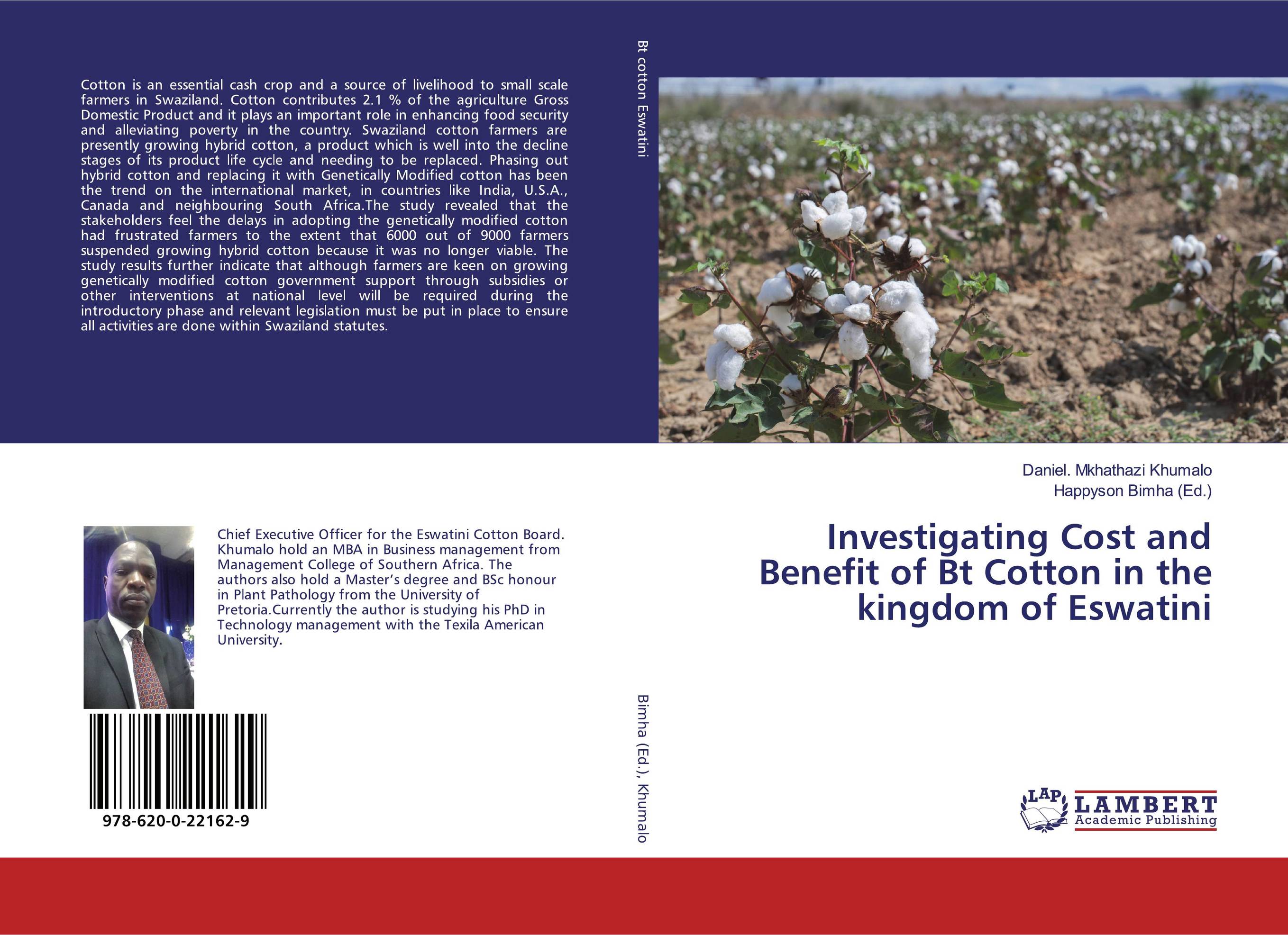| Поиск по каталогу |
|
(строгое соответствие)
|
- Профессиональная
- Научно-популярная
- Художественная
- Публицистика
- Детская
- Искусство
- Хобби, семья, дом
- Спорт
- Путеводители
- Блокноты, тетради, открытки
Investigating Cost and Benefit of Bt Cotton in the kingdom of Eswatini.

В наличии
| Местонахождение: Алматы | Состояние экземпляра: новый |

Бумажная
версия
версия
Автор: Daniel. Mkhathazi Khumalo and Happyson Bimha
ISBN: 9786200221629
Год издания: 2019
Формат книги: 60×90/16 (145×215 мм)
Количество страниц: 112
Издательство: LAP LAMBERT Academic Publishing
Цена: 32315 тг
Положить в корзину
Позиции в рубрикаторе
Сферы деятельности:Код товара: 230398
| Способы доставки в город Алматы * комплектация (срок до отгрузки) не более 2 рабочих дней |
| Самовывоз из города Алматы (пункты самовывоза партнёра CDEK) |
| Курьерская доставка CDEK из города Москва |
| Доставка Почтой России из города Москва |
Аннотация: Cotton is an essential cash crop and a source of livelihood to small scale farmers in Swaziland. Cotton contributes 2.1 % of the agriculture Gross Domestic Product and it plays an important role in enhancing food security and alleviating poverty in the country. Swaziland cotton farmers are presently growing hybrid cotton, a product which is well into the decline stages of its product life cycle and needing to be replaced. Phasing out hybrid cotton and replacing it with Genetically Modified cotton has been the trend on the international market, in countries like India, U.S.A., Canada and neighbouring South Africa.The study revealed that the stakeholders feel the delays in adopting the genetically modified cotton had frustrated farmers to the extent that 6000 out of 9000 farmers suspended growing hybrid cotton because it was no longer viable. The study results further indicate that although farmers are keen on growing genetically modified cotton government support through subsidies or other interventions at national level will be required during the introductory phase and relevant legislation must be put in place to ensure all activities are done within Swaziland statutes.
Ключевые слова: cotton, Genetically modified, cotton value chain



